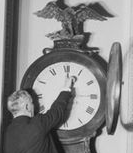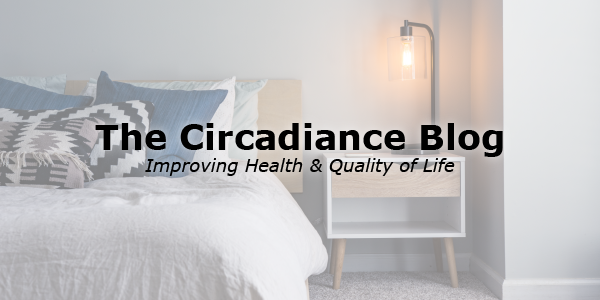Daylight Saving Time starts Sunday, March 8 at 2 am and this can cause more trouble for some than you may think.

“An hour seems like a minor change, but moving the clock ahead one hour can be very stressful or disruptive for some people, particularly for those who are already sleep deprived,” says to Jeffrey P. Barasch, M.D., FACCP, FAASM, Medical Director of The Valley Hospital Center for Sleep Medicine.
“The problem goes beyond just the loss of a single hour of sleep on the night of the clock change,” Dr. Barasch says, “The time change also plays havoc with the body’s circadian rhythm, or biological clock.”
This biological clock, located within a part of the brain behind the eyes, determines when we feel alert and when we are sleepy. The internal clock keeps our bodies synchronized with the daily light-dark cycle of the outside world. The biologic clock is ‘set’ or fixed to the time of day by two factors: the time we regularly wake up in the morning and our exposure to sunlight during the day. It can be reset, but (as anyone who has traveled by airplane across several time zones has experienced), the biological clock cannot be adjusted too quickly.
When we move the time clock one hour earlier for daylight savings time, our bodies remain partly on the prior schedule (known as ‘jetlag’ in plane travel). The result: 7 am in daylight savings time is equivalent to 6 a.m. standard time. Also, your typically sunlit mornings will now be dark, and that lack of morning light makes it even more difficult for your internal clock to adjust. So not only are we losing an hour of sleep, but since it can take some time to readjust, we’re left feeling tired for more than the one day on which the clocks change.
People who normally sleep well can usually adjust to the time shift with relatively little difficulty. However, if someone has been barely coping with an undiagnosed and untreated sleep disorder, daylight saving time can exacerbate and therefore unmask problems such as sleep apnea, insomnia or periodic limb movement disorder.
The following tips from Dr. Barasch can help you get a good night’s sleep:
• On the nights after the time change, go to bed at your usual time. You may experience some difficulty falling asleep, because your body’s clock has not yet adjusted.
• Get up at your usual time regularly. Although you may find this a bit difficult, it will help you adjust to the time change.
• Avoid sunlight or bright light in the first few evenings after the time change, as this will tend to keep you awake later and prevent adjustment of your body’s clock.
• Try to get sunlight exposure soon after awakening in the first few mornings after the time change, as this will help you adjust to the new time.
• A short nap can help make up for less sleep, but won’t help you acclimate to the new schedule. Don’t nap within a few hours of your regular bedtime to avoid disrupting nighttime sleep.
• Create a sleep-friendly environment that is dark, cool, comfortable and quiet.
• Have a relaxing routine before bedtime, such as soaking in a hot bath, reading or listening to soothing music.
• Avoid caffeine, nicotine and alcohol for several hours prior to bedtime, as they can disrupt sleep.
If you regularly experience daytime drowsiness, fatigue or disturbed sleep, speak to your doctor or consult with a sleep medicine specialist.





